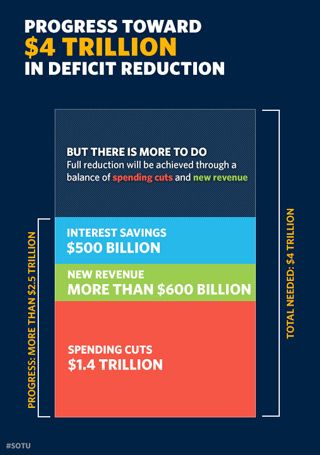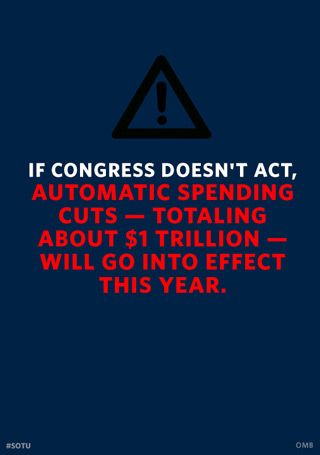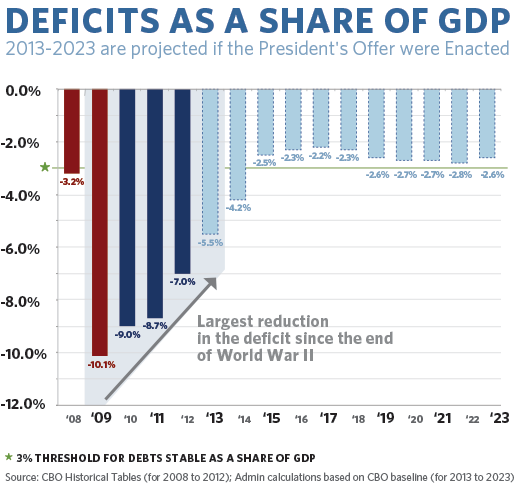

Over the last few years, both parties have worked together to reduce our deficits by more than $2.5 trillion. More than two-thirds of that was through some pretty tough spending cuts. The rest of it was through raising taxes — tax rates on the wealthiest 1 percent of Americans. And together, when you take the spending cuts and the increased tax rates on the top 1 percent, it puts us more than halfway towards the goal of $4 trillion in deficit reduction that economists say we need to stabilize our finances."
So What's the Sequester? Why Now?
"Now, Congress, back in 2011, also passed a law saying that if both parties couldn’t agree on a plan to reach that $4 trillion goal, about a trillion dollars of additional, arbitrary budget cuts would start to take effect this year. And by the way, the whole design of these arbitrary cuts was to make them so unattractive and unappealing that Democrats and Republicans would actually get together and find a good compromise of sensible cuts as well as closing taxloopholes and so forth. And so this was all designed to say we can't do these bad cuts; let’s do something smarter. That was the whole point of this so-called sequestration."
"Unfortunately, Congress didn’t compromise. They haven't come together and done their jobs, and so as a consequence, we've got these automatic, brutal spending cuts that are poised to happen next Friday."
"Now, if Congress allows this meat-cleaver approach to take place, it will jeopardize our military readiness; it will eviscerate job-creating investments in education and energy and medical research. It won’t consider whether we’re cutting some bloated program that has outlived its usefulness, or a vital service that Americans depend on every single day. It doesn’t make those distinctions."

